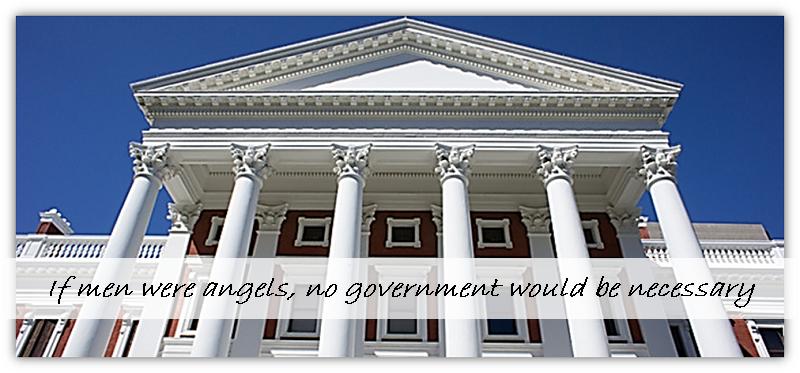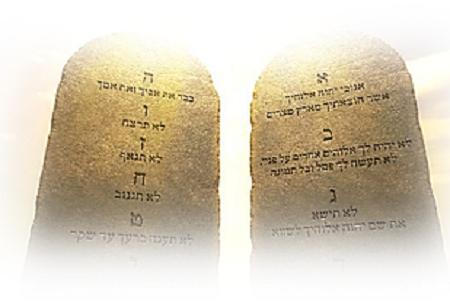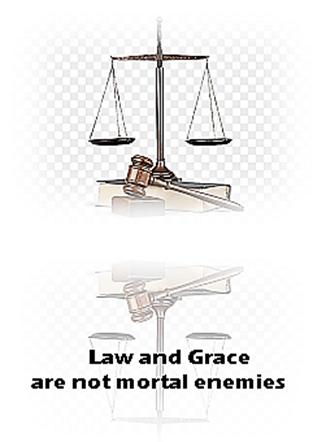Order in The Church
Order in The Church

The Foundations of Church Government⤒🔗
It is often the case that Bible-believers are too preoccupied with other spiritual concerns to "bother" with church government. Despite the failure to appreciate this area of faith — to our own detriment — governments of all kinds are quite important and value-laden, just as theories, scientific and otherwise, are value-laden. The very structures of church government and polity are quite significant, far from being neutral matters of bare process. In one sense, revealed polity is just as foreign to the natural mind, as revealed ethics or soteriology are to the natural mind. Likewise, revealed polity is equally necessary — and equally theological at its root. As in other areas, our root will shape our fruit. For that and many other reasons, the greatest of which is biblical fidelity, the conscientious Christian will aspire to cling to the revelation of God particularly where it addresses matters of church government.
In what follows, I hope to give the following: (1) a theological rationale for church government, (2) an evaluation of the historic importance of maintaining a thorough polity, and (3) beginning propositions for a theology of government.
First consider the theological underpinnings of polity.
I. All government is necessitated by human depravity and the Fall, and as such, is necessarily a mechanism of response to that fallen condition. Although ordering is inherent within the Trinity and in creation, government as given by God is purposefully erected to restrain sinners and protect the righteous. If we, in some state of nature were able to act "upon our honor" as it were, then government would not be needed. As James Madison commented: "If men were angels, no government would be necessary."
We expect people to be sinners, and thus seek to construct the best possible form of government that will at least limit, although not eradicate, such ill-effects of sin.
Therefore, we have constructed governments with checks-and-balances. Furthermore, it is helpful to stress regular and thoughtful means of accountability. To best facilitate this, most evangelicals have acknowledged the necessity of constitutions as following the faithful patterns of God. Such constitutions serve to delimit unbridled subjectivity and will-reign, exhibiting our firm belief in the need to limit the power of any individual. As Abraham Kuyper surmised, Calvin "was republican because he knows that even kings are sinners, who yield to temptation perhaps more readily than their subjects, inasmuch as their temptations are greater.... he knows equally well that the selfsame sin moves the masses, and that, hence resistance, insurrection, and mutinies will not end, unless a righteous constitution bridles the abuse of authority, marks off its boundaries, and offers the people a natural protection against despotism and ambitious schemes."
Hence, constitutionalism is a restraint on sin. It is sin, however, in either civil or ecclesiastical government that demands a certain form. Our theology of sin and our anthropology are the values which shape our subsequent church government. Theology thus forms polity.
II. If the above is admitted, then it will be a constant value to seek to appropriate biblical church government while clinging to the biblical teaching. Furthermore the Bible's instructions and information on matters of government are every bit as much the revealed mind of God as is the revealed mind of God on salvation, social responsibility, prayer, or providence. Hence, the sincere disciple will want to know God's mind on this matter. The existence of biblical teaching on this area is part of the application of 2 Tim. 3:16: "All scripture is profitable for teaching and correcting."
James H. Thornwell helpfully pointed out:
While we admit that questions of government are subordinate in importance to questions of faith — mere trifles compared with the great truths of the Gospel as a scheme of salvation — it does not follow that they are of no value. Whatever God has thought proper to reveal, it becomes man to study. 'Everything in its place,' is a just maxim, but it by no means implies that comparatively small things are entitled to no place. Because church government is not the great thing, it does not follow that it is nothing. We are as far removed from latitudinarianism as from bigotry. We wish to study the whole will of God, and we wish to give everything precisely that prominence which he designs that it should occupy in his own Divine economy.
To the extent that one is committed to know that "whole counsel of God" (Acts 20:28), church government will be a part of the Christian mind. It is that thorough commitment to be submissive to the whole counsel of God, even in the spheres of government, which is one of the distinguishing marks of the best of ecclesiastical order.

Hence, we will cling to all that God has revealed to us about government or any other subject, as long as it is truly revelational. We will stubbornly refuse to act as editors or evaluators, seeking to prioritize canons within canons of Holy Writ. All scripture is inspired and profitable — even the verses which inform about church administration or government. Evidently God did not think these subjects to be below the scope of revelation.
The heart of biblical order is the belief that sinful minds, apart from the special revelation of God, will not come up with correct structures. Hence, God as an act of his mercy, much like his revelation in the Law, gives to his people that which they would not contrive on their own. In his mercy, he spares us not only eternal lostness, but also some measure of temporal lostness by sparing us endless organizational searches. God reveals the basic pattern of government for his people. He did not leave us in the dark. The regular life and ordering of the church is far too important, at least to God, to leave either to caprice, to the shifting sands of corporate culture, or to human ingenuity. Such revelation from God on organizational matters are tokens of God's grace, wisdom, and providence.
Unfortunately many people often utter things like, "God wouldn't waste his time putting such petty matters as church discipline, and order in the Bible"; or "All of the church's operations, since it is a human government, are to be left up to, and determined by the local society, however, they see best"; or "Church Administration is strictly up to the individual."
These and other types of comments, seem to err in two directions: (1) They overestimate our own managerial ability, and (2) They underestimate God's revealed plan for his church.
On the contrary there is much information in the Bible about how God wants to run his church. The key to remember is, that it is his church, hence not ours to design. We follow his commands in the areas of the government and administration of the church, just like we follow his commands in any other area of life. Furthermore, these fully biblical principles should not be ignored in the local church, lest we stunt the growth of the Body of Christ and prove ourselves to be sub-scriptural as well.
Modern Christians will want to be equally biblical in the realm of ecclesiastical government as they are in the view and practice of civil government or any other biblical issue. It would be a striking theological irony if modern Christians, now better instructed as to the cultural mandate along with its accompanying need to witness in government, became adroit at secular involvement or civil governance while remaining incompetent in ecclesiastical government. If we can be meaningful participants in secular government, then all the more so, we should have some measure of maturity in ecclesiastical governance.
Biblical Church Government: Neither Reactionary nor Independent←⤒🔗
III. The scriptures throughout portray a view of government which is bounded by the Word of God and also stresses the premium upon accountability and checks-and-balances.
Often churches of reformed heritage are pressed by the molding of the surrounding culture's ethos toward a polarity that is much more similar to congregational/democratic polity than by principles of presbyterian/representative polity. In well-intended reaction away from hierarchical tyranny, some communions find themselves more aligned with democratic government than scriptural government.

God has not left believers isolated to fend for themselves. Those who are not connected to the body of Christ and those who are not flourishing with one another are depicted as "cut off from the head" (Col. 2:19). Unrelatedness is neither a virtue in the NT nor the OT. The Bible is squarely against individualism as an infrastructure for a form of government. The scriptures are consistently opposed to the modern rights-oriented societies of the western world. When problems arise, our Father has loved us enough to give us other counselors, godly elders, and the infallible Bible which reveals to us who God is and what he wants. For our own good, God has put together an organized form for settling controversies. God gave the greater counsel (Prov. 15:22) and the Assembly to his church. This structure is to be an aid to the local church, with the power located in the grassroots, and with the momentum originating in the local church. Yet he has also revealed a protective layer, an organized system of appeals, to peacefully resolve issues. That is part of God's problem solving method (Acts 15).
One can marvel at the intricate care which our Savior and Architect took to design his church. God's church is no slipshod organization. It is an organism yes; but it is also the best organization in the world. He designed it, and it is his church. Thus it should be implemented his way, too. God loved this church very much. Not only did he give his Son for her, but further, he gave her a continuing government and method of problem solving that is exhibited in Scripture.
In our own times, we're often chagrinned at how much Christians strive for autonomy. That was not the case in the NT. It was not the expressed desire of the NT church to do its own thing. The churches felt a strong bond. We are led to ask, "Was it they who were wrong? Or we? Is it possible that we yearn for a little too much independence, and a little too much self-rule, which could actually be dangerous for us?" From time to time, it is necessary for us to recall that Adam and Eve started the move to be autonomous, even from God. The Scripture corrects and rebukes when we want to say: "Well, each church can do anything it wishes." That is difficult to reconcile with the NT. Consider, for example, how often the NT speaks of a uniform standard among its churches. Not only was this decision for all the churches, but elsewhere in the NT (1 Cor. 7:17; 11:16; and 14:33-38) a uniform approach is adopted.
Evangelicals, of all people, perhaps have a heightened appreciation of this after the scandals of the 1980s. American evangelicalism in the 1980s was confronted with much immoral and undisciplined leadership. One result was to force an undisciplined, rather raw and youthful evangelicalism to mature. By their abuses and by their observation of wrongs, a powerful correction came into the evangelical community. The correction was definitely a reactionary thrust, perhaps even a text-book illustration of reaction formation. The path of this development is similar to a stock-market correction, i.e., when excesses occur, the market will eventually react, and after correction, arrive at realistic levels of value. It may be an opportune moment to affirm that, in the Providence of God, recent scandals were used to call the community to maturity. Evangelicals were called by the excesses of some to distance themselves from the errors identified by/in their (and other similar) ministries. Evangelicals learned the painful, but conservative lesson, that if the Bible-believing community was to have a lasting, multi-generational impact, both within to the church and without to the world, they must of necessity seek shelter in some of the classical practices of the historic church. In terms of church government and discipline, a present swerve toward the classic is detectable.
The 1980s witnessed the beginning of a renewal in ecclesiology, the heretofore ignored stepchild of the theological blue-bloods. The return to the classic was evident as the ancient traditions and practices of government were rediscovered. Accountability and government had become more important than either charismatic individuality or sheer spontaneity.
Evangelicals rediscovered: There is no regular case in the NT in which a church or fellowship dwelling in the same region disregards the other Christians or their counsel. There is a definite interconnection between doctrinal orthodoxy and the implementation of it. To the degree that the church holds to biblical truth, it will find itself dissatisfied with provincialism and isolation from others in the Body. Biblical orthodoxy is catholic and true fellowship of spirit yearns to be connectional. If the church is catholic, then it will be unified and apostolic. All too often the modern church is too easily satisfied to settle for non-catholicity. Our American context lends itself to an Enlightenment 'democratization' and a distinctively Lockean view of voluntarism, tending toward privatization or consumerism. Yet the biblical testimony corrects those urges, if we will but allow our thinking to come into line with revelation on the subject. A biblical view of government values interrelated fellowship as a goal of its ministry both to (1) moderate some of the effects of unchecked sin, and (2) edify the saints by such connectedness. Simultaneously, a theology of government will devalue isolation in its multiple forms.
As hallmarks of this interconnectedness, the biblical church will seek to have a keen eye out for accountability and checks-and-balances. The fibers which hold us together are mutual fellowship. One manifestation of this mutual fellowship is that we care enough to discipline, rebuke, even interrupt, when we know the other will not automatically welcome our rebuke. Still, we have learned from Scripture and history that if anyone is left alone and unaccountable, then eventually, even the best of saints may fall. Thus the loving approach is to preset certain stopgaps for accountability.

Another recent lesson is the renewal of appreciation for church history. God's church is built upon its past historical stages; accordingly, biblical government has evolved with a historical dimension. It is reasonable to expect that past paradigms of polity can be instructive for us today. An appreciation of the contributions of the past in this area will assist any who wish to reconstruct biblical polity.
IV. There are certain paradigms from history which can serve to educate future generations.
The governmental teachings of Luther, Calvin, Knox, Beza, Voetius, Wollebius, the Jus Divinum (recently revised and reissued by Naphtali Press in Dallas), Thornwell, and Dabney are sufficient paradigms that can also serve as primers for church government.
For those who value organizational progress, we can urge, "Don't re-invent the wheel." The biblical aspects of government, need not be ignored by each successive generation, nor rediscovered by the alternating generations. We could profit much by studying the "Old Paths" (Jer. 6:16 and 18:15). Far from being a pharisaic expression of traditionalism, that is the better part of wisdom as we seek to rule out those inefficacious modes of governing. History has value in eliminating erroneous dead-end paths. Even secular polity experts recognize the value-ladenness of governmental structures. All the more is this true in church polity — which spans several theological variables, none of which have changed drastically over time.
Likewise, we can benefit from those who've already pioneered some of these paths for us. Or we can disregard their work, presuming that we are sufficient to discover all biblical truth by ourselves in our own generation. In what other academic discipline would such folly exist, as in the field of polity, to so consistently ignore the history of our development? A rediscovery of the paradigms of our past is sorely needed in our own day. Such theological giants, polity examples, and confessions could teach us much.
It is long overdue that a revival of vital interest in ecclesiology should resurface. Sincere Christians should not be the last to find this out, as even the liberationists of the late 20th century have so discovered the importance of the political dimensions for the church. The strongest chapters in the lives of churches will be those in which they clearly know the basis of their principles of governance.
Introduction to the Theology of Church Government←⤒🔗
V. It is fundamentally and most basically the church which is called to carry out God's mission.
The church cannot long delegate, nor abdicate this responsibility. Para-church movements are substitutes and at times in history most helpful. Yet we cannot afford to forget that it is the church which is the corporate organization chosen by God to perpetuate the faith. Other structures are supplemental.
From the outset we must seek to govern the church according to the principles of government that are taught in the Holy Scriptures. We are neither free to add to nor detract from those. Our sole goal, like that of any theology, is to put forth what the Bible says no matter what opposition may arise. As James Thornwell reminded: "The Puritans apprehended the Holy Scriptures to be a standard of church discipline as well as doctrine; at least, that nothing should be imposed as necessary but what was expressly contained in or derived from them by necessary consequence..." We, too, pine to be biblical and only biblical. Perhaps, to paraphrase a C. S. Lewis title (Mere Christianity), we only seek to put forth Mere Polity. Such biblical polity has long been recognized by movements of reformation in pursuit of a return to scriptural Christianity. The Bible points to the church; and the church points to the Bible in matters of government. If we but have ears to hear, we can learn from this already charted biblical consensus, rather than attempting to re-invent the wheel.

Polity is a part of revealed doctrine, not an unrelated appendage to the heart of biblical living. There is one consistent form of government which fits with the underlying theology of the church and it must be a government that (1) honors God's Word as the revealed law and mind of our Creator, (2) accounts for depravity in our nature and action, (3) seeks to reinforce by checks and balances the limitation of such depravity and finally (4) seeks to give glory and honor to Christ, the Head and King of the Church and not the human agents. That form which is biblical and primitive should be the love of every disciple.
Often the organic connection between theology, sacramentology, and polity is overlooked. An illustration may demonstrate this with more clarity. For example, one Christian puts great weight on the ability of the individual and his conscience to discern the will of God. The "light within" is valued more than any form or structure. By and large, structures are seen as inhibitors of the true work of the Spirit. Thus this inherent antithesis between "inner light" and outer form accounts for much of the antipathy toward government found among certain evangelical groups. Still, the connection between articles of faith is an organic one, not an accidental one. Consequently, the noetic effects of sin are underestimated, while the ability of the conscience is overstated in some governmental forms or non-forms. Theology drives polity.
The form of government that is consistent with these theological values is one which is dependent more on man's ability and ingenuity than on the sovereign administrative power of God. It is no accident, therefore that many evangelicals have little or no appreciation for biblical government. Normally, any government at all is left up to the individuals. It is the role and right of the saints to govern to the best of their ability. The redeemed individual has made an individual, personalistic decision for Christ. Now he/she will follow that personal decision and continue to make individual polity decisions, preferably unhindered by tradition, law, creed, or structure of man-made denominations.
Usually, in these traditions, either some form of natural law, or else spiritual spontaneity is determinative for the polity of that body. Freedom from law (which is seen as inherently prohibitive) or sometimes even a rampant, reckless form of grace — which looks very similar to anti-nomianism — would not allow such believers to be confined by form or structure. Structure is inherently disdainful. This individual-centered (as contrasted with community-centered) set of polity commitments values freedom over form. Moreover, it is consistent with the majoritarian polity of modern evangelicalism stemming from its most democratic ethos (cf. Nathan Hatch's, The Democratization of American Christianity). As a result, there is a diminished role for checks and balances. The spirit and the will reign rather than proven polity.
For now, suffice it to note that polity is in accord with a biblical theology. A theology's distinctive views of sin, grace, God and man are inescapably mirrored in its companion polity. Like liturgy, it is not so much a question "Will we have one?" for all do, either by design or by default, but "Which theological principles will shape your liturgy?" So with polity, it is not "Will we have a polity?" but "Which polity will we have, as it is assuredly based on theological principles?" Leaders, especially, should be aware of this.
The organic principle, therefore, uniting the best of theology, Sacramentology, and polity is the Divine Definition. This Divine Definition is consequently applied to each sphere, such that Government is Sure divino (or by divinely defined rule), Sacramentology is divinely defined as "that which is immediately instituted by Christ Himself" (WCF XXVII: 1), or divinely defined. Theological truth, likewise, is that which is revealed or defined by God as being true. Accordingly, biblical worship is prescribed by divine definition. Thus the organic and radical principle of the revealed faith, be it in government or other theological loci, is that such views are all to arise from divine definitions, revealed from the God of grace to wayward men who would otherwise not discover such definitions.
It is not accidental, therefore that those who hold to the special revelation of God, find themselves — almost inescapably — thrust toward a view of church government and worship that may be described as regulative in both spheres. In neither are we free to innovate or conjure. Instead, we're bound to follow our Creator. This may be despised by some as an inhibition of our human creativity, but this also safeguards and exalts our Creator and Redeemer, rather than the redeemed. He is sufficient, and as Sovereign Governor, he regulates all areas of life. Government would have to be proven either to be an area of non-significance for this life, or else an area over which God has no business in order for it to escape his rule.

Below are some beginning propositions for a theology of church government.
(1) It is a loving thing to have a well-ordered church, governed by the biblical norms. One of the first misconceptions to be removed is that church government or structure is inherently inimicable to loving pastoral care and sensitivity. Such view sees shepherding and structure as mutually exclusive.
Needless to say, this is not biblical. On the contrary in many instances, the most loving thing pastors can do is provide loving, supportive church government and structure. In fact, a lack of love spawns chaos, not order. It is not loving to provide no guidelines, leaving each individual to an autonomy of their own judgment. Frequently a clear authoritative resolution is the kindest thing for a church.
It should also be remembered that well-planned government, as with well-planned worship, takes time and effort. These are labors of love, stemming from our servanthood. Anyone invited to dinner as a guest, does not feel cared for, if upon arrival, the host announces, "Well, what is the spirit leading us to eat tonight? I 've not prepared a thing. Let 's see what we can throw together." Similarly, pastors who leave governing solely up to the impulse of the whims of the moment, are not loving hosts for the flock. Like good structures, good pastoral government aids us in our walk along the level highway. Good church government is a distinct help to the normal Christian.
In fact, to default in church government is an unloving and irresponsible act. It is patently uncaring to desert the flock to a pasture without corral or provender. Pastors and elders must rediscover polity, as its etymological origin implies, as politeness. Part of the original meaning of "polite" was its reference to advanced culture, or refined manners. Well-developed polity is but the mature, or organized practice of civility toward one another. If we would be polite, we will avail ourselves to revealed polity.
K. De Gier in his Explanation of the Church Order of Dordt in Questions and Answers comments on the need for these governments, in answer to "What benefit accompanies a good organization of the church?": "It is a helpful and blessed means of ministering to the perfection of the saints and the edification of the body of Christ. In case of differences, the members are assured of a more impartial treatment. Office bearers may receive assistance in solving difficulties." Hence well-formed polity is helpful for edification and a servant to impartiality. Even evangelism is bolstered by good church order.
(2) Church government is a gift of the Holy Spirit. Romans 12 dignifies the image of church government by listing kubernesis (governing) as one of the charismatic gifts of the Holy Spirit (12:8); thus exonerating this gift from the sinister overtones often accrued by association with corrupt or unjust civil governments. As the Scriptures depict government in such fair light, the church (and its ministers) would do well to embrace government as a grace-gift. Never in Scripture is church government described with negative overtones. Rather, it is a positive gift of God to his church, betokening the grace, care, and love of the Savior for his church.
Church government in its ordered form is not a contradiction of the Holy Spirit's leading. On the contrary, the Holy Spirit may work in certain patterns, developing channels of norms. Such historic channels of response, gradually evolve into structure. And such structures, deduced from revelation are normative guides for the church in all ages and cultures. While it is true that we exhibit an historic and mammoth anti-nomian tendency in the modern church, such failure should be recognized for the error it is. Law and Grace are not mortal enemies. Neither is church government in its ordered form a contradiction of the Holy Spirit's leading.

(3) As suggested above, polities are not divorced from compelling theologies. The theology is the foundation for polity. To the extent that a Christian works out his/her salvation in fear and trembling (Phil. 2:13), theology will expand into polity. The discerning Christian will be quick to reject any polity advertised as value-neutral or non-theological. No theology or philosophy is founded in an ideological vacuum; neither are polities. It is a far healthier approach to recognize the nature of polity's theological foundations from the outset. Thus any polity may be evaluated not merely in terms of pragmatic efficiency, but also in terms of the validity of its theological presuppositions. However, in no case should the organic connection between theology and polity be ignored or minimized. Church government is organically connected to the theology which bears it.
(4) With the legacy of such paradigms, there is no reason to stumble. We do not begin our search for the best polity without help. Not only do we possess the divinely revealed scriptures which portray biblical polity for us, furthermore we have a rich history of both success and failure in the appropriation of such.
One would be wise to acquaint himself with the abuses and missteps of the history of polity, as well as to familiarize himself with those polity structures which have stood the tests of time. The legacy of paradigms can complement the norms of Scripture. Thankfully, we have a noble past which could (but seldom does) spare any church much confusion and heartache. A pastoral theology would avail itself to the successes of the past, as platforms for the future.
The consistent, enduring and best rationale for government is that which is most scriptural. Past paradigms can also help us much. A vigorous ecclesiastical government is symptomatic of theological vitality and maturity. Church government must be strongly theological and frequently scrutinized by the lens of theological category and analysis. All church government is theology-driven and not immune from theological overflow; nor should it be. To understand this is the first step toward polity renewal, which is a needed ministry in our churches. In an age that seeks to avoid order and structure, it is more incumbent on biblical leaders to seek to revive church government.

Add new comment